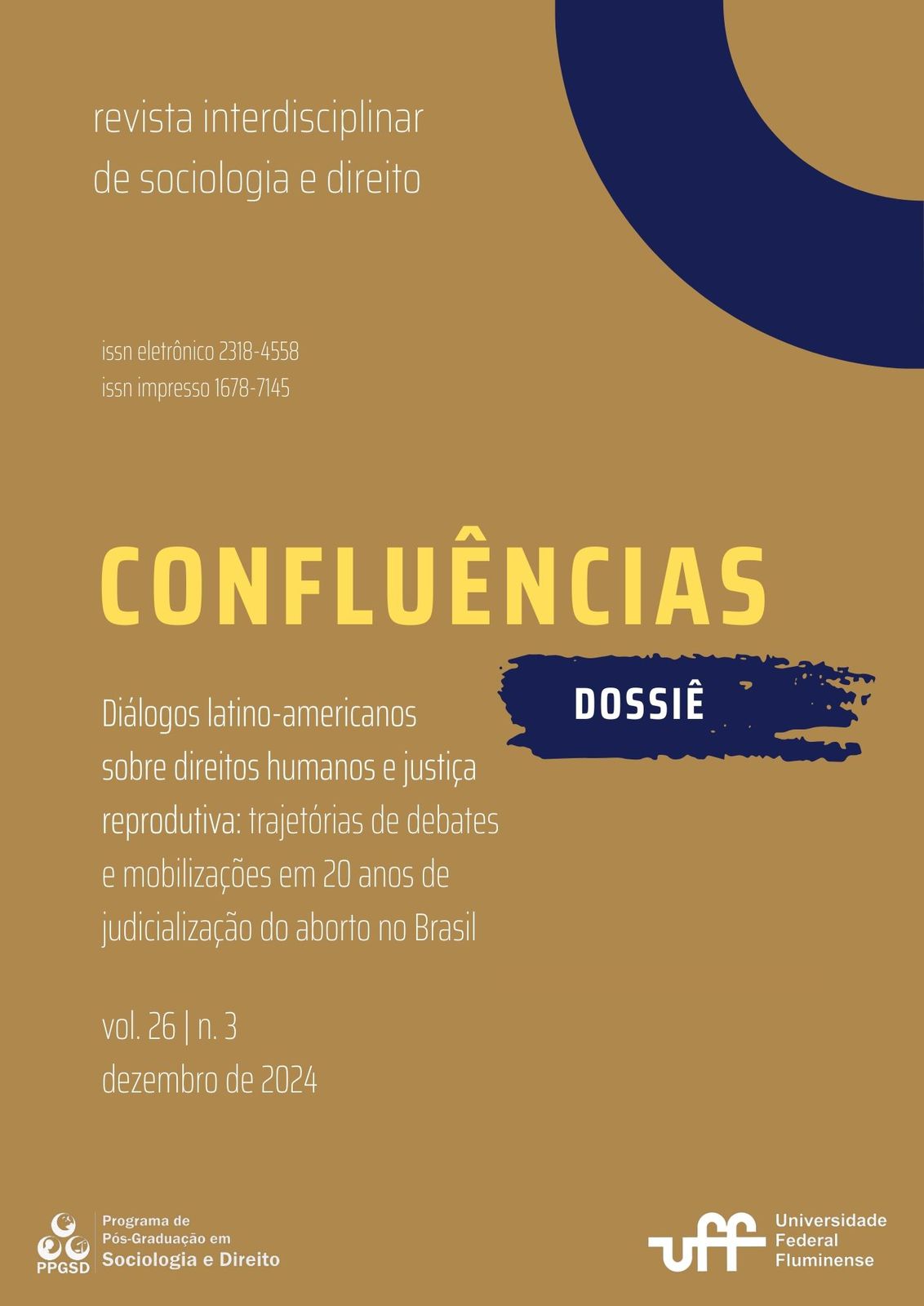Neoconservative Legislative Mobilization In Brazil and Women’s Rights
From the 1987-1988 Constituent Assembly to Law Project 1904/2024
DOI:
https://doi.org/10.22409/conflu.v26i3.64939Abstract
Although feminist movements around the 1987-1988 Constituent Assembly played an important role in preventing the rollback of women's sexual and reproductive rights, growing neoconservatism in legislative spaces has brought to light narratives of restrictions on legal abortion provided for in the Penal Code since 1940. In view of this, this article aims to demonstrate the influence of religious groups in the search for shaping policies on the subject, creating barriers that prevent not only the expansion of reproductive rights, but also the application of the secular legal hypothesis. By analyzing, in contrast, the discussions presented at the time of constitutional renewal and, currently, Bill No. 1,904/2024 of the Chamber of Deputies, we can see the attachment of religious groups to scientific arguments as tools to reinforce preexisting moral positions, especially with regard to the protection of fetal life from conception and the equivalence of abortion in advanced stages to a crime against life. Both contexts share a restrictive view of abortion and the defense of medical and legal interventions to avoid the procedure in cases of fetal viability. In this scenario, resistance to sexual and reproductive rights, especially the right to abortion, is presented as part of a coordinated effort by conservative sectors to bring religion closer to the law and reverse feminist advances.
Downloads
Downloads
Published
How to Cite
Issue
Section
License
Copyright (c) 2025 Adriana Vidal de Oliveira, Isabelle Augusto Faria

This work is licensed under a Creative Commons Attribution-NonCommercial 4.0 International License.







